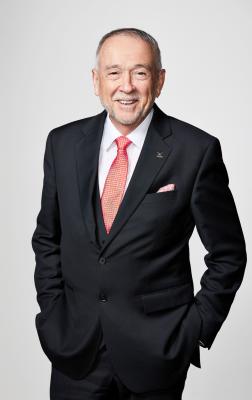THE defining song of the 1960s younger generation, The Who’s ‘My Generation’, starts with ‘People try to put us down!’.
I wonder what The Who’s lead singer, Sir Roger Daltrey, makes of his younger self today, singing the end line “I hope I die before I get old”. He’s now 77.
Sadly, during the pandemic, where young and older have suffered most, this generational friction is being ‘talked up’.
Every time an Intergenerational Report (IGR) comes out, as one did in June this year, we read statistics and comments that older people are becoming more of a financial burden on younger generations.
There’s no shortage of experts commenting on intergenerational challenges from ageing, but National Seniors Australia takes a different approach.
We asked older Australians, in an anonymous survey, what concerns they had for the younger people today.
It turned out to be quite a lot! We received almost 3000 responses freely expressed in text box comments.
We collated the results and, this week, released them in a new report: ‘Worry about the younger generation: Older Australians’ intergenerational solidarity.’
While there were negative things written about certain behaviours of younger people, there were ideas about what the government should be doing to help them, for example with mental health.
Among the top issues raised by seniors were unemployment and job security, housing and affordability, education, mental health, and climate change.
This demonstrates, as our report notes, the continued presence of an “intergenerational solidarity” among older Australians.
A notable sentiment was a lament that life is harder for younger people than it was for the generations before them.
It’s not a case of “Things were better in my day” rather it’s an acknowledgement of the economic and social challenges young people face.
Which is why unemployment and housing affordability are among the top concerns.
In terms of jobs and job security, older Australians fear technology and an increasing casualisation of the workforce are impacting younger Australians more.
The current boom in property prices would only increase concerns for housing affordability.
This is a big issue for younger people which older people were extremely concerned about.
The economic theme is the strongest among respondents who fear younger people face greater financial hardship than themselves, with lower wage growth and the high cost of living, and bear in mind this survey was conducted before COVID.
Research by National Seniors during the pandemic shows the concerns remain consistent, with comments such as: “…will substantial periods of remote learning prove detrimental to them over time?”
“…I don’t think we are being fair to the younger people, losing jobs and missing out on their social lives. I’m concerned about how life will look after this and the permanent change that may affect my grandkids’ lives and opportunities.”
There’s no shying away from the figures in Treasury’s Intergenerational Reports showing the ageing population and increased medical and care costs will be a challenge.
But older Australians were not themselves responsible for creating the ‘baby boom’.
Nor is it fair or even true to suggest older Australians are impervious, or don’t care what sort of a future they are leaving for younger generations.
The fact that climate change is among the major issues of concern for seniors is testament to that.
When that question was asked separately in another survey 87pc were concerned about it.
As for suggesting older Australians will become an increasing economic burden for younger people, reports such as the IGR and subsequent commentary overlook seniors still contribute a lot to the economy.
The unpaid care they provide to the grandchildren so parents can still work full time or even part time adds to the nation’s productivity and economic growth.
And many older Australians would, if given the chance, like to stay in the workforce and continue to pay tax, but because of ageism by employers and disincentives such as losing the pension if they continue to work, they are locked out of employment.
Sure, we do need to address how we’ll pay for future health and ageing costs, especially considering the amount of money spent saving the economy during COVID.
But older people do pass on inheritances to the young so it isn’t young versus old, but rich versus poor we need to worry about.
Social solidarity between young and old remains constant and is very much needed during the COVID pandemic when both age groups have experienced the worst of it.
To reference The Who song again: don’t try and put seniors down, and remember Roger Daltrey got his knighthood in large part for raising almost $4m for the Teenage Cancer Trust.
Professor John McCallum,
National Seniors Australia chief executive








